Picking the right web hosting service can be quite confusing. There are so many options out there, each promising the moon. Yet, we’ve all experienced the frustrations—downtime during peak hours, sluggish website speeds, or unhelpful customer support.
As we approach 2024, it’s time to expect more from your hosting provider. You need a service that’s robust enough to handle heavy traffic, also loads quickly. Most importantly, you deserve a partner that will be there for you and provide personalized support when you need it the most.

That’s why we’ve meticulously analyzed and curated a list of the 5 Best Hosting Services for 2024—each one selected to empower your online presence with unparalleled speed, uptime reliability, and round-the-clock assistance.
Types of web hosting
1. Dedicated Web Hosting
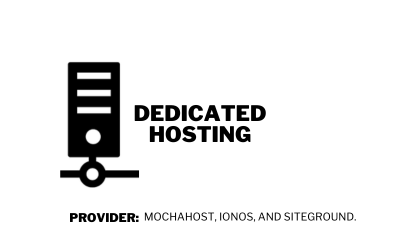
Dedicated hosting is when you use an entire server for your website alone. This is especially useful for large businesses.
2. Shared Web Hosting
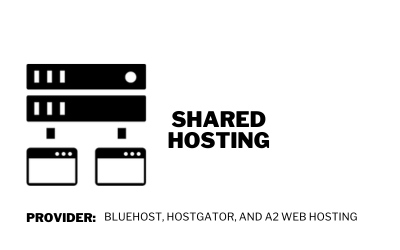
Shared hosting is a type of web hosting where multiple websites share resources on a single server. It’s cost-effective but can lead to slower performance. It’s a best option for small businesses and personal websites.
3. Managed Web Hosting
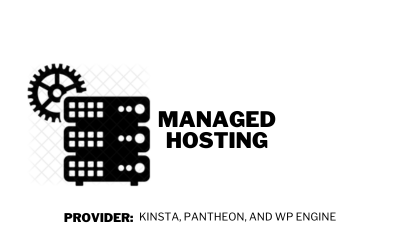
Managed hosting is a service where a hosting provider takes care of technical tasks like setup, maintenance, updates, and security for your website.
4. Cloud web Hosting

In cloud hosting, your website is stored on a group of virtual servers. These servers work together, to provide high reliability, flexibility, and scalability.
5 Best Hosting Services for 2024
- Hostinger: Best for small business owners
- Bluehost: Most popular
- NameCheap: Most Affordable
- A2Hosting: Low cost shared web hosting
- GoDaddy: Top choice for combined web hosting and website building.
Choose the Best Hosting for you
Hostinger | NameCheap | Bluehost | A2 Hosting |  GoDaddy |
| Feature 1. Cache manager 2. File manager 3. Malware scanner 4. SSL certificates 5. One-click VPS access More | Feature 1. Database support 2. FTP access 3. Migration assistance 4. Custom error pages 5. Free SSL More | Feature 1. Unlimited Storage 2. Secure Shell Access. 3. FTP Access 4. Web File Manager 5. 24/7 Network Monitoring More | Feature 1. Free SSL certificate 2. Free site migration 3. Unlimited email addresses 4. cPanel Integration 5. CMS Support More | Feature 1. WordPress Integration 2. DDoS protection 3. Global data center 4. 150+ free server-side applications 5. Pre-installed payment system More |
| Rating 4.7 | Rating 3.9 | Rating 4.1 | Rating 4.3 | Rating 4.7 |
| Starting from 1.99$ | Starting from 1.98$ | Starting from 2.95$ | Starting from 2.99$ | Starting from 2.99$ |
| Uptime 99.99% | Uptime 99.99% | Uptime 99.99% | Uptime 99.98% | Uptime 99.96% |
| Speed (avg duration) 2.93 Seconds | Speed (avg duration) 1.43 Seconds | Speed (avg duration) 0.35 Seconds | Speed (avg duration) 0.37 Seconds | Speed (avg duration) 0.98 Seconds |
| Review | Review | Review | Review | Review |
(Rating Source : trustpilot) (Speed test tool : dotcom tools)
1. Hostinger
If you’re looking to create a business website, Hostinger is a great option on a budget. They offer budget-friendly packages with plenty of features, such as unlimited bandwidth and storage, a complimentary SSL certificate, and an one year’s free domain. Hostinger also has a user-friendly interface and 24/7 support, making it a good choice for beginners.
Pros
![]() Backups performed daily or weekly (based on plan)
Backups performed daily or weekly (based on plan)
![]() Access to Website Builder
Access to Website Builder
![]() Complimentary SSL certificate
Complimentary SSL certificate
![]() Includes a free domain (except the Single Web Hosting plan)
Includes a free domain (except the Single Web Hosting plan)
![]() Seamless WordPress integration
Seamless WordPress integration
![]() Hassle-free migration from any previous hosting provider to Hostinger
Hassle-free migration from any previous hosting provider to Hostinger
Cons
![]() Limited customer support: Live chat and email only, no phone support
Limited customer support: Live chat and email only, no phone support
![]() Starter plans offer minimal storage and bandwidth
Starter plans offer minimal storage and bandwidth
![]() Hosting and domain renewal costs are elevated
Hosting and domain renewal costs are elevated
![]() Plans show affordability mainly for 24-48 month durations
Plans show affordability mainly for 24-48 month durations
Customer Review
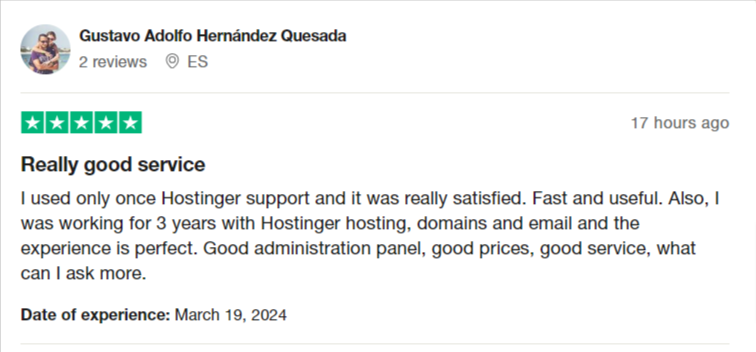
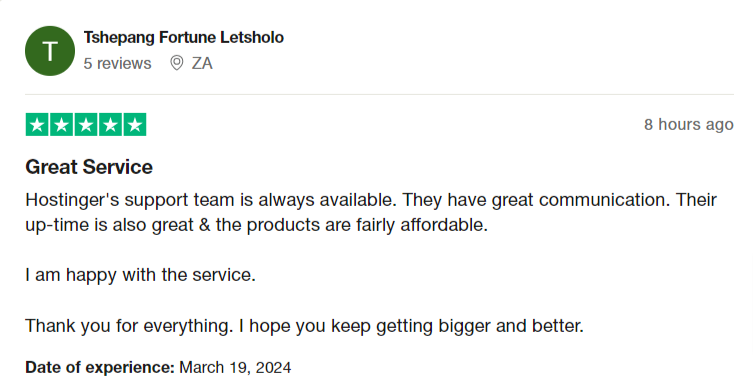
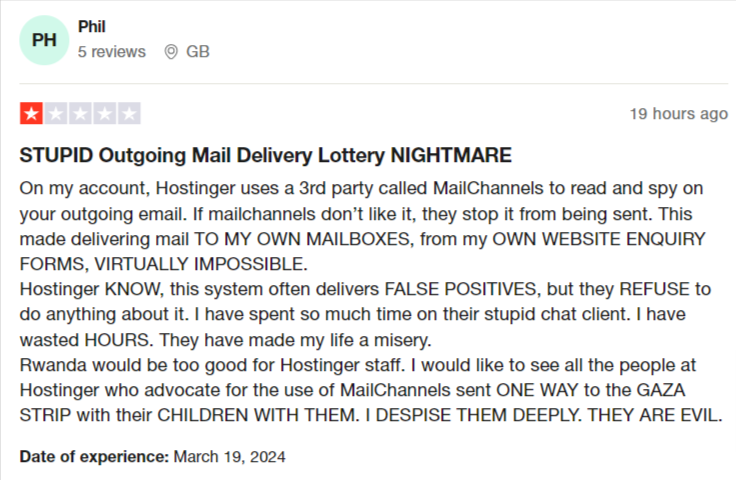
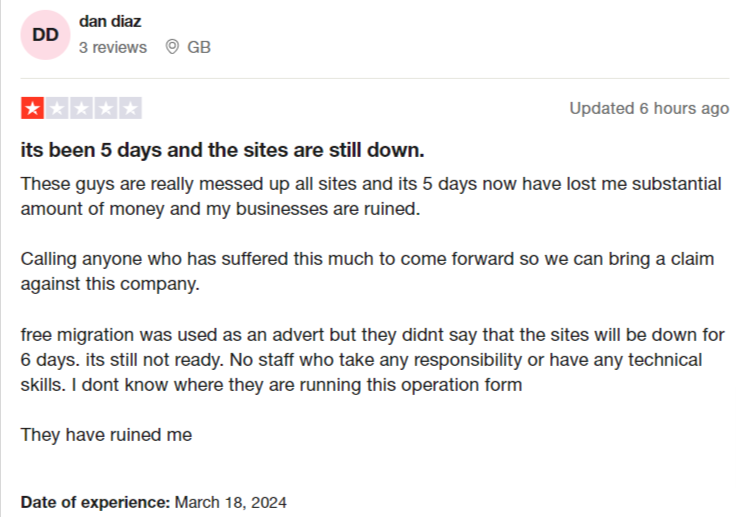
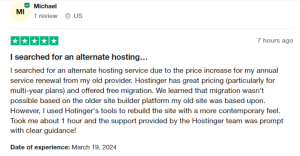
Pricing
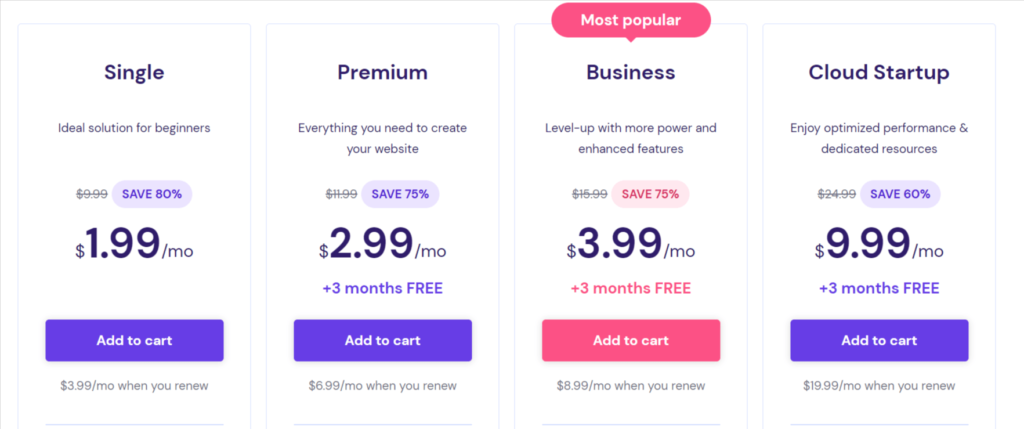
2. BlueHost
Bluehost is another popular hosting provider that is well-suited for your businesses website. They have many different plans you can pick from, like shared, VPS, and dedicated hosting. Bluehost also has a good reputation for uptime and customer support.
Pros
![]() Reliable performance during testing
Reliable performance during testing
![]() Complimentary site migration service
Complimentary site migration service
![]() Outstanding hosting plans for WordPress
Outstanding hosting plans for WordPress
![]() 1-click WordPress installation
1-click WordPress installation
![]() Constant 24/7 customer support
Constant 24/7 customer support
![]() Access to exclusive offers totaling over $175
Access to exclusive offers totaling over $175
![]() Valuable software for building your WordPress site
Valuable software for building your WordPress site
Cons
![]() Does not offer cloud hosting
Does not offer cloud hosting
![]() No monthly shared hosting plan
No monthly shared hosting plan
![]() Limited storage for basic plan
Limited storage for basic plan
Customer Review
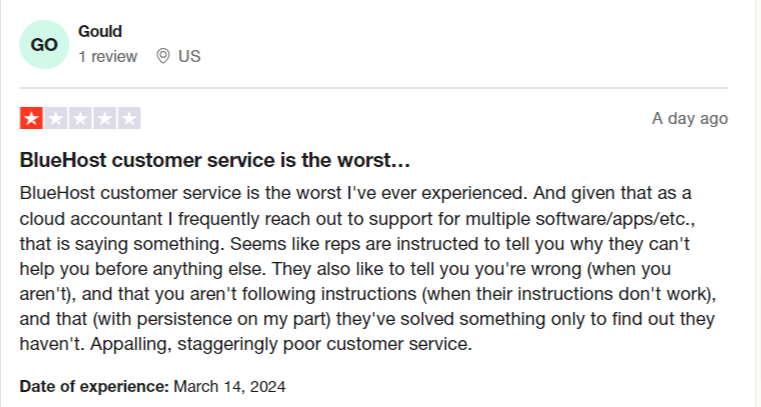
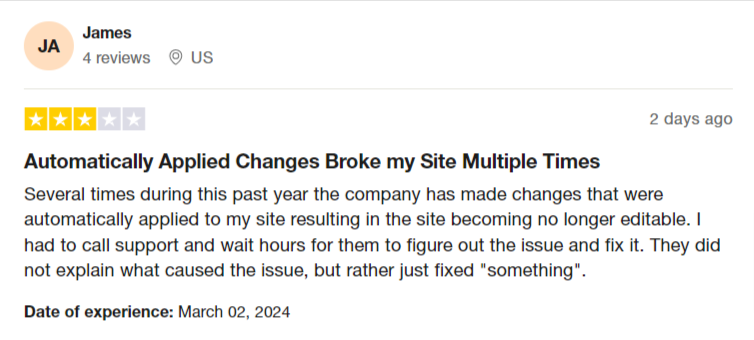
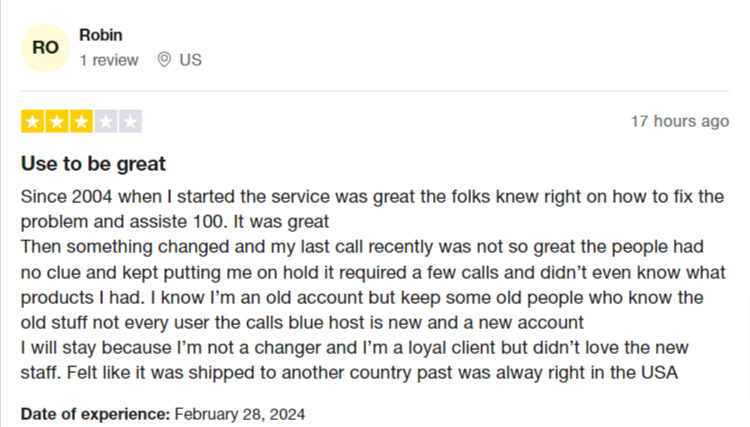

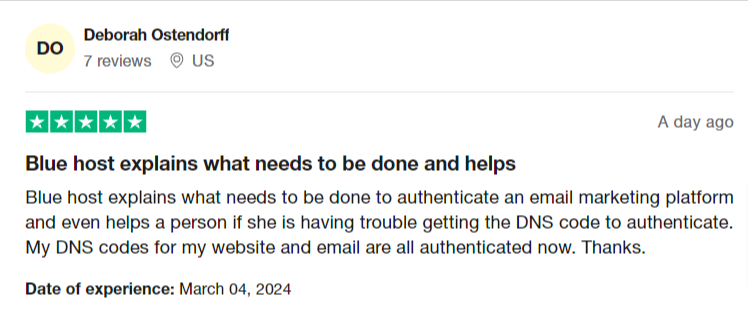
Pricing

3. Namecheap
Namecheap is another good option for startups and hobbyists. They offer affordable domain and hosting plans with features like free email accounts and website builders. Namecheap also has a good reputation for customer support.
Pros
![]() Premium DNS service
Premium DNS service
![]() Excellent chat support
Excellent chat support
![]() DNS setup and propagation
DNS setup and propagation
![]() Easy domain registration
Easy domain registration
![]() Low-cost hosting option
Low-cost hosting option
Cons
![]() Premium domains are overpriced
Premium domains are overpriced
![]() Poor Customer support
Poor Customer support
![]() Limited storage for basic plan
Limited storage for basic plan
![]() Limited Email hosting
Limited Email hosting
Customer Review
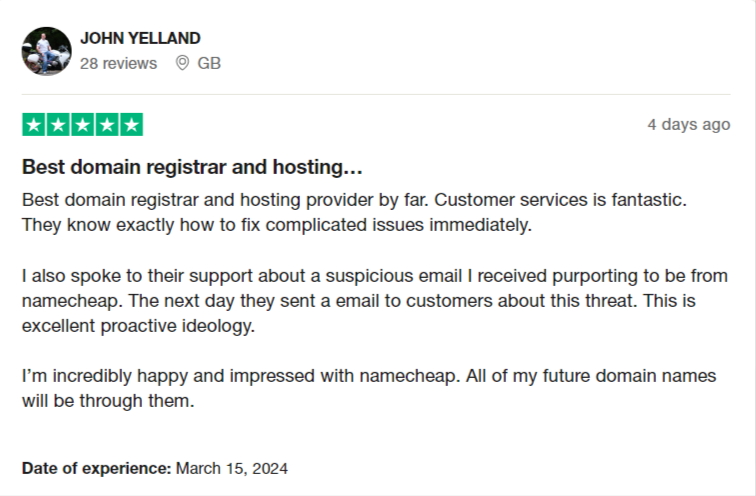
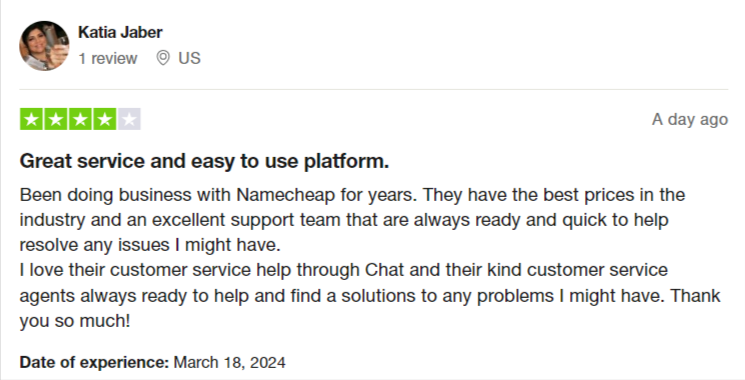
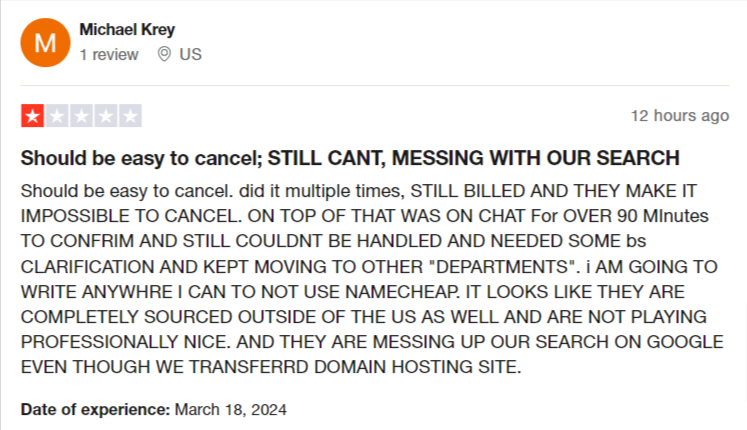
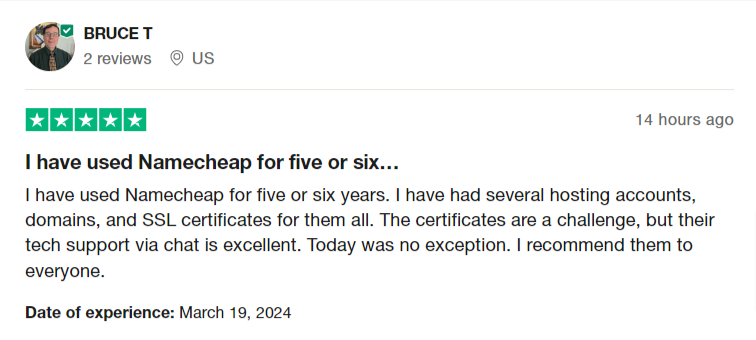
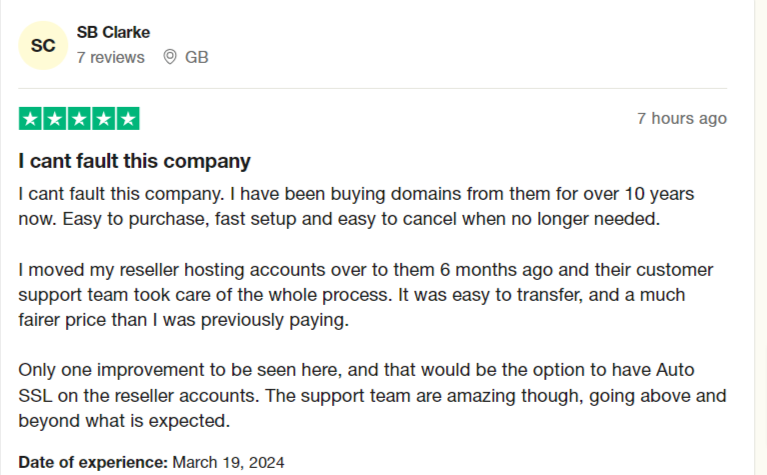
Pricing
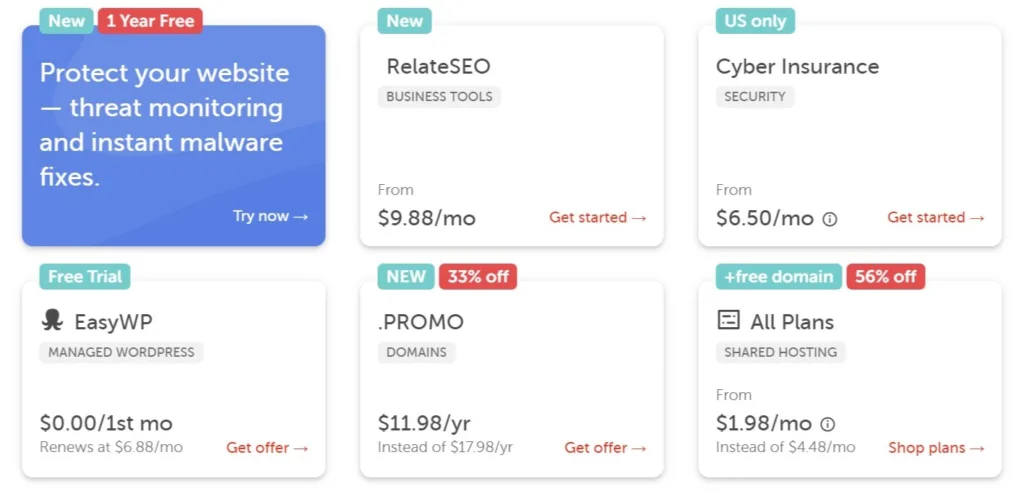
4. A2Hosting
A2hosting is a high-performance hosting provider that is a good choice for businesses with high website traffic. They offer plans with up to 20 times faster speeds than other providers. A2Hosting also has a good uptime guarantee and 24/7 support.
Pros
![]() Unlimited storage on most plans
Unlimited storage on most plans
![]() 24/7 Support
24/7 Support
![]() Money back guarantee
Money back guarantee
![]() Free Migration
Free Migration
![]() Great Uptime
Great Uptime
![]() Robust hosting packages
Robust hosting packages
Cons
![]() Expensive than others
Expensive than others
![]() Turbo available only for expensive plans
Turbo available only for expensive plans
![]() No Windows Server Option
No Windows Server Option
Customer Review
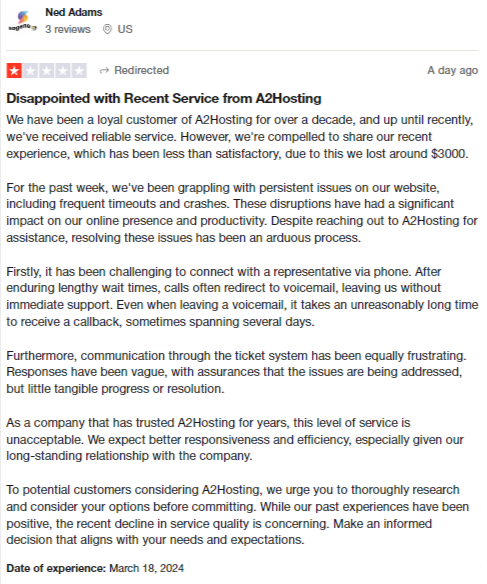
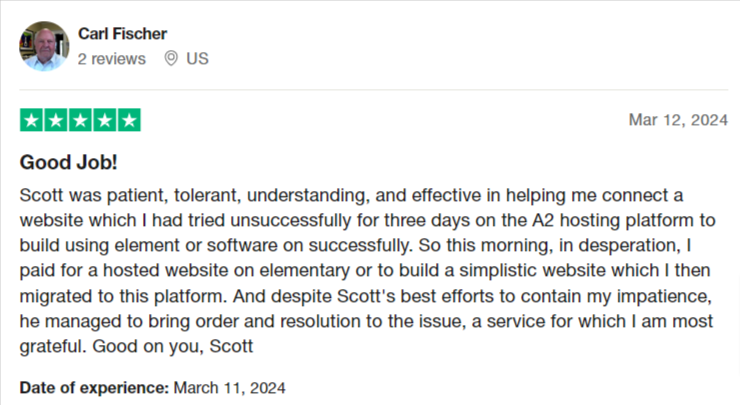
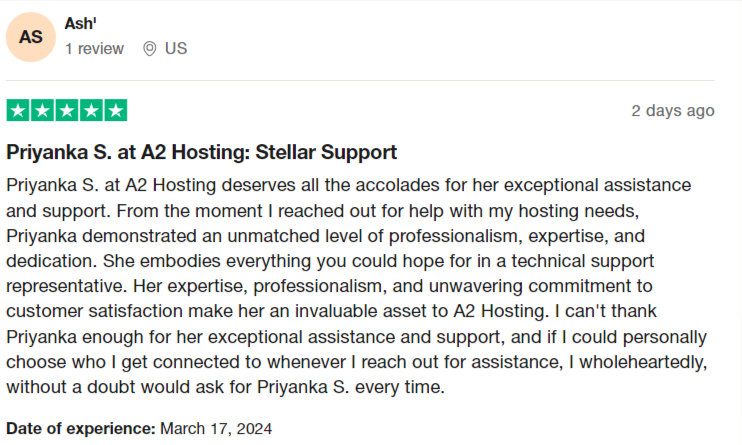
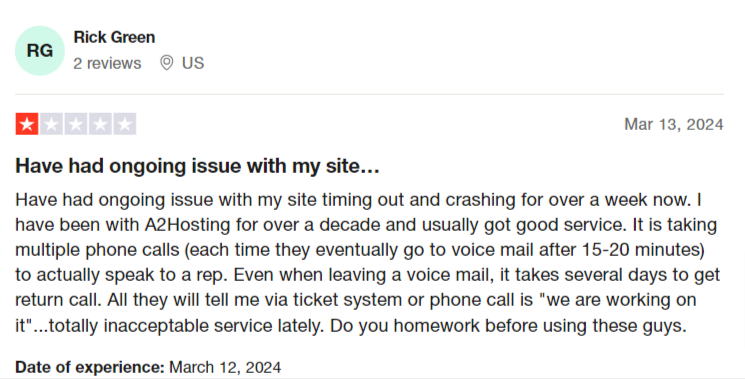
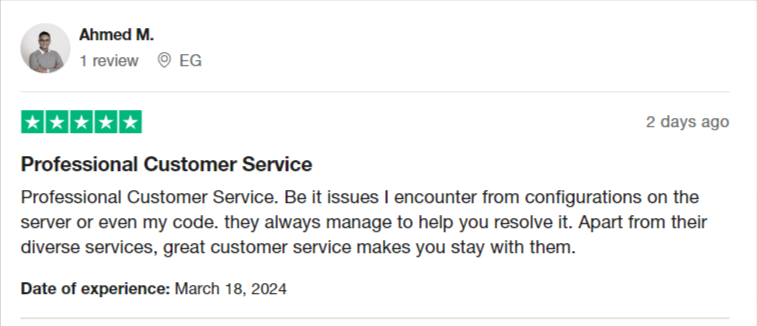
Pricing
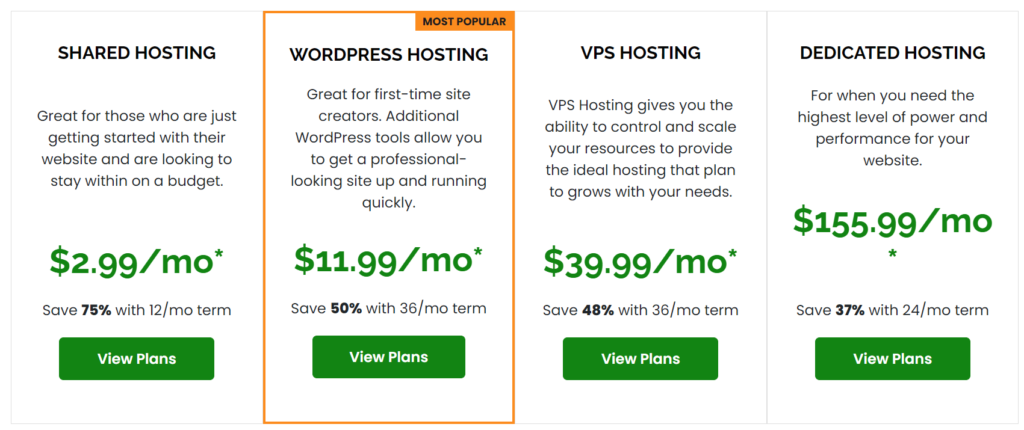
5. GoDaddy
GoDaddy is a well-known hosting provider that offers a variety of features and plans. They offer shared, VPS, and dedicated hosting plans, as well as domain names and website builders. GoDaddy also has a good reputation for customer support.
Pros
![]() Simple to configure
Simple to configure
![]() Unlimited bandwidth
Unlimited bandwidth
![]() Includes Microsoft 365 for the first year
Includes Microsoft 365 for the first year
![]() Comes with a free domain
Comes with a free domain
![]() Great Uptime
Great Uptime
Cons
![]() Poor customer service
Poor customer service
![]() Site migration is difficult
Site migration is difficult
![]() High renewal price
High renewal price
Customer Review
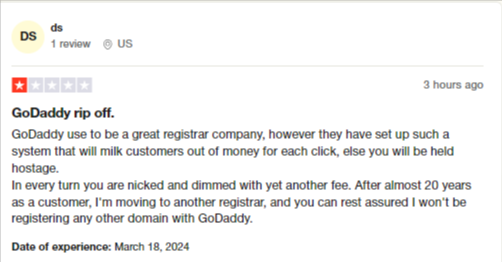
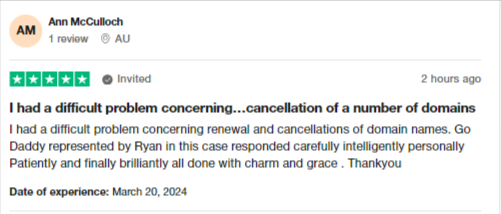
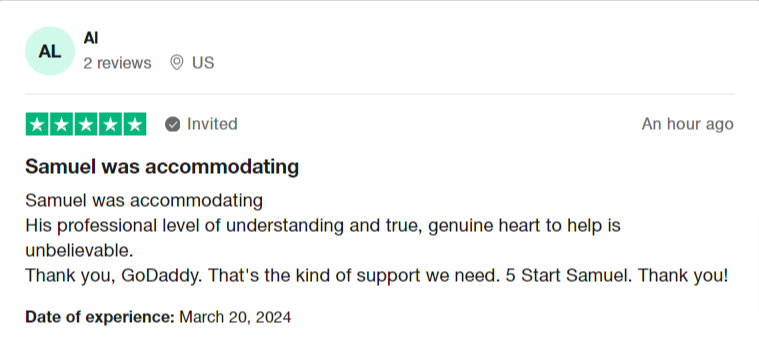
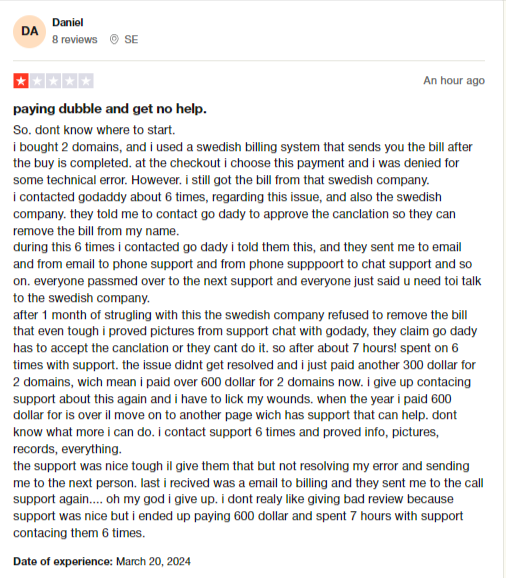
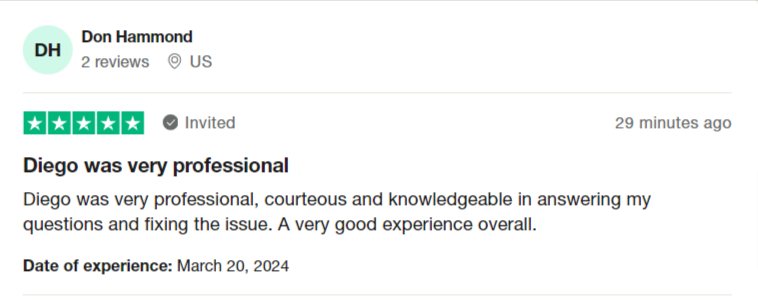
Pricing

Buying Guide- Best Web Hosting Service 2023
When you’re picking a web hosting company, think about a few important things. Start by figuring out what your website needs, like how many visitors you’ll have, how much storage you need, and if the hosting works with your software.
It’s a good idea to choose a company that’s dependable, so look for ones that have a good record of keeping websites online and positive feedback from users. Choose a plan that fits your needs.
- If you’re trying to save money, shared hosting is good.
- If you want your website to grow easily, go for VPS hosting.
- And if you want more control, dedicated hosting is a good choice.
- If you’re not a tech expert, look for hosting with easy tools and website builders.
Good customer support is really important. Pick a company that can help you 24/7 through different ways. Check if they give you a free domain, SSL certificates, and backups. Watch out for how much it costs when you renew and any extra charges.
Beyond hosting, many businesses benefit from bundled SEO + hosting packages that provide long-term performance.
Lastly, look at how the company keeps your website safe and their rules for refunds. Do some research, and you’ll find the right hosting for your website’s goals and what you can afford.
How Your Hosting Provider Impacts Your Site’s Performance
Your hosting provider plays a big role in how your website performs. Here’s how:
– Speed: A good host helps your site load faster. Why? Because they use better hardware and have quicker connections. If your site loads slowly, visitors might leave before seeing your awesome content.
– Uptime: This is about how often your site is up and running without issues. Good hosting means your site is available all the time, bad hosting can mean frequent downtimes or crashes.
– Security: Hosting providers keep your site safe from hackers and malware. A secure host means a secure website, which is crucial for keeping your visitor’s trust.
– Support: Ever run into website trouble? With a supportive hosting team, you’re not alone. They help fix problems quickly so you can get back to business as usual.
In short, choosing the right hosting provider can make or break your website’s success. Fast speed, constant availability, tight security, and helpful support are what you should look for!
Articles You May Find Useful
The Guide For Small Business Website In 2024
Website Launch Checklist: 50 Actionable Steps (Pre & Post Launch)
